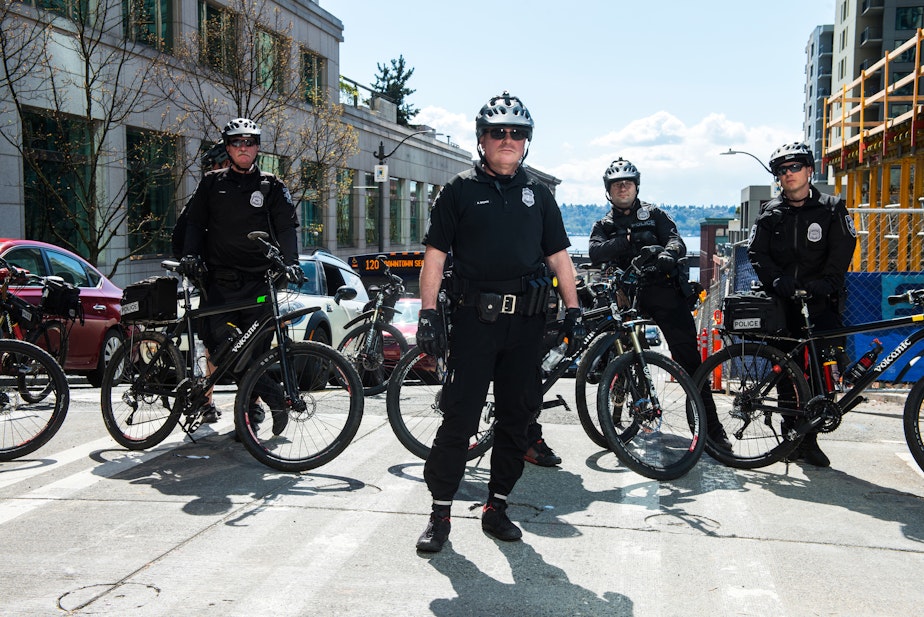More hate crimes reported in Seattle; people reluctant to call 911

The Seattle Police Department says bias and hate crime reporting continues to rise in Seattle.
SPD published a report for the first half of 2017 that shows bias crime reporting is up 39 percent from last year’s reporting during the same period.
The largest increase (64 percent) was in crimes with bias elements — things like road rage where someone introduces a racial or ethnic slur into an argument.
According to the report there were 178 bias incidents recorded. SPD says it’s likely that some of the increase is due to increased confidence in reporting.
Detective Beth Wareing, who coordinates the department's response to bias crimes, says many of the reports came from witnesses. Still other callers wanted information about what to do if they saw someone being victimized.
Sponsored
“What this tells me is that the people of Seattle are really talking about this,” Wareing said.
She just wishes that more people would call 911 when they see something or are victimized.
“Get to a safe place and call 911. For some reason people in Seattle will not call 911. It’s crazy making to me,” Wareing said. "They go home and they call the non-emergency line, or they try to report online. It’s a funny cultural thing about Seattle. They’ve just been the victim of a violent crime!"
Wareing says she gets at least one or two calls or emails a week from both victims and witnesses.
“I get a lot of emails from people who say, 'This happened to me yesterday. What should I do?' I tell them to call 911 immediately,” Wareing said.
Sponsored
Wareing adds that most of the arrests for these types of crimes are either when patrol officers see it or when someone calls 911.
Seattle Police aren’t the only ones seeing an increase in bias incidents
Jasmin Samy is civil rights manager at the state chapter of the Council on American-Islamic Relations. She says they’ve noticed an increase in reporting as well.
While Samy agrees that people may be reporting more often, she also believes that we’re living in an increasingly Islamaphobic and xenophobic environment that has further endangered already vulnerable populations.
“We would be interested to see any research or empirical support for SPD's position on why people are reporting more now," Samy said. "It would be a tool for us to encourage community members to report to the police."

